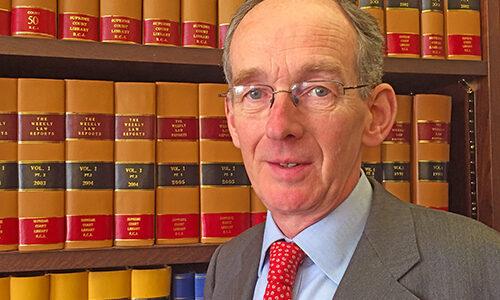The President of the Family Division is a highly esteemed position in the United Kingdom’s judicial system. It is a role responsible for overseeing and presiding over family-related cases in England and Wales. In this article, we will delve into the history of the position and provide details on the current holder.
History
The President of the Family Division is a judicial office in England and Wales, established in 1873 by the Judicature Act, which reformed the court system in England and Wales.
The Act created a single Supreme Court of Judicature consisting of the High Court of Justice and the Court of Appeal. This replaced the previously separate court systems of common law and equity, and it also established several new judicial positions, including the President of the Probate, Divorce and Admiralty Division.
The Family Division was created in 1971 when Admiralty and contentious probate cases were removed from its predecessor, the Probate, Divorce and Admiralty Division.
Current President of the Family Division
The current holder of the position of President of the Family Division is Sir Andrew McFarlane. He is know as The Right Honourable Sir Andrew McFarlane.
Sir Andrew was appointed to the position in July 2018 and succeeded Sir James Munby.
Prior to his appointment, McFarlane served as a Lord Justice of Appeal and as a judge of the High Court’s Family Division. Sir Andrew McFarlane is known for his extensive knowledge and experience in family law.
Sir Andrew McFarlane was called to the bar in 1977 and practiced as a barrister for 25 years before being appointed as a High Court judge in 2005.
As well as being the President, Sir Andrew is also a member of the Court of Appeal. The Family Division of the High Court consists of 19 High Court Judges. It deals with:
- Divorce, including disputes over children, property or money;
- Adoption, wardship and other matters involving children; and
- Judgments on behalf of those who are unable to make decisions for themselves, such as persistent vegetative state victims.
The Family Division also deals with undisputed matters of probate – the legal recognition of the validity of a will – in the Probate Registry of the Family Division in London, and the 11 probate registries in England and Wales.
Throughout his career, Sir Andrew has presided over many high-profile cases, including cases related to surrogacy, adoption, and child custody. He has also been involved in many ground-breaking decisions related to family law.
During his time as President of the Family Division, Sir Andrew McFarlane has been focused on improving the family court system in England and Wales. He has implemented a number of reforms aimed at making the system more efficient and user-friendly. One of his key initiatives has been to improve the use of technology in the family court system, with the aim of reducing delays and making the process more streamlined.
Sir Andrew McFarlane has also been an advocate for greater transparency in family court proceedings. He has spoken out about the need for more openness in the system, particularly in cases involving the care and protection of children.
Conclusion
The President of the Family Division is an important position in the United Kingdom’s judicial system.
The current holder of the position, Sir Andrew McFarlane, is a highly respected and experienced family law judge who has been focused on improving the family court system. With his initiatives aimed at improving the use of technology and increasing transparency, he has made significant contributions to the field of family law in the UK.
Check out our articles on Judiciary, President of the King’s Bench Division, HHJ Farquhar, HHJ Bedford and the highly questionable Sussex Family Justice Board.
Read the reviews of Gavin Howe Barrister
“He is awful, underhanded and should not be practising law!”
Latest Articles
- What is a Paralegal ?A paralegal is a legal professional who performs tasks that require knowledge of legal concepts but does not hold the… Read more: What is a Paralegal ?
- What is a Judgment ?A judgment, also known as a judicial decision or court ruling, is the final decision made by a court of… Read more: What is a Judgment ?
- What is an Adverse Inference ?Adverse inference is a legal principle that plays a significant role in various areas of law, including criminal, civil, and family law. It arises… Read more: What is an Adverse Inference ?
- BarristersA barrister is anyone who has been Called to the Bar in England and Wales. For a barrister to offer… Read more: Barristers




